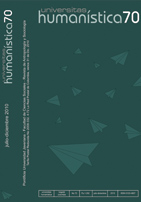Abstract
This paper presents some theoretical reflections on the political reality created by the Nasa movement on northern Cauca in Colombia, in order to posit new conceptualizations to understand ethnic movements in Latin America. The discussion begins with a brief review of some gaps found in studies about those social phenomena, to continue to analyse particularities and experiences of this community process starting from the following questions: how is the nature of the Colombian Nasa movement’s indigenous politics expressed?; how could we understand its political reach in light of social movement theories?; how to analyse the dynamics of their collective actions along the last decades? These questions are answered through a theoretical approach that firstly focuses on understanding social movement political practices, to proceed with the proposal for a new typology of collective actions for these movements.
This journal provides immediate open access to its content on the principle that making research freely available to the public, encourages greater global exchange of knowledge.
The journal Universitas Humanística is registered under a Creative Commons Attribution 4.0 International Public License. Thus, this work may be reproduced, distributed, and publicly shared in digital format, as long as the names of the authors and Pontificia Universidad Javeriana are acknowledged. Others are allowed to quote, adapt, transform, auto-archive, republish, and create based on this material, for any purpose (even commercial ones), provided the authorship is duly acknowledged, a link to the original work is provided, and it is specified if changes have been made. Pontificia Universidad Javeriana does not hold the rights of published works and the authors are solely responsible for the contents of their works; they keep the moral, intellectual, privacy, and publicity rights.
Approving the intervention of the work (review, copy-editing, translation, layout) and the following outreach, are granted through an use license and not through an assignment of rights. This means the journal and Pontificia Universidad Javeriana cannot be held responsible for any ethical malpractice by the authors. As a consequence of the protection granted by the use license, the journal is not required to publish recantations or modify information already published, unless the errata stems from the editorial management process. Publishing contents in this journal does not generate royalties for contributors.


